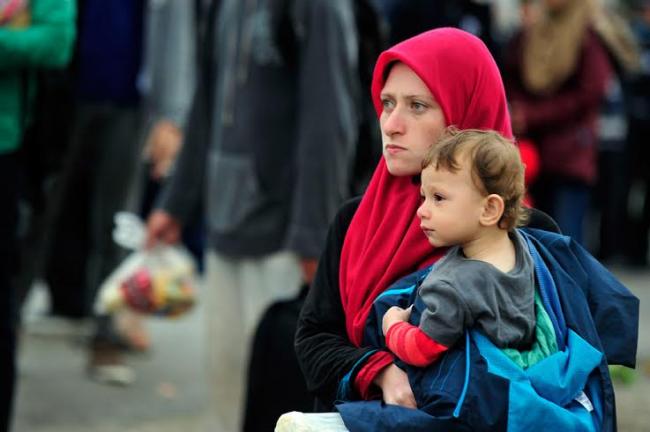23 Sep 2015, 06:53 am Print

“Thousands of women and girls, some of them pregnant, are on the move along the transit routes in the Balkans, often without access to basic hygiene and health services and with little protection from violence. As most of the women and girls are constantly moving, and often not registered, we need a swift, mobile and highly flexible response to meet their needs,” said UNFPA Executive Director, Dr. Babatunde Osotimehin.
According to a news release issued by UNFPA, about 13 per cent of refugees and migrants entering Europe are women. If the crisis worsens, the agency has projected an estimate of 70,000 women to be moving along the Balkans route over the next six months. Of these women, 4,200 are likely to be pregnant and about 1,400 are at risk of sexual violence.
“We must ensure that women and girls can make their journey safely, and that they get the services they need to stay healthy along the way. These investments help save lives now, and many of them also help build sustainable capacities that the host populations will continue to benefit from in the future,” added Dr. Osotimehin.
UNFPA plans to distribute 70,000 dignity kits over the next six months to serve the projected amount of women travelling through the area. The kit would include basic hygiene and healthcare items that can help women and girls to preserve their dignity on the move. Mobile clinics will be set up at strategic points, staffed with gynaecologists and nurses along with materials for safe-deliveries and prevention of HIV and sexually transmitted diseases.
UNFPA will also boost the capacity of governments and civil society groups in the affected countries to provide quality health services for women and to prevent and manage sexual and gender-based violence.
Photo: UNICEF/Tomislav Georgiev
- WHO prequalifies new oral simplified vaccine to combat cholera, here is all information you need to know
- Pandemic experts sound alarm over the spread of avian influenza to humans
- Nigeria is now the first country to introduce 'revolutionary' meningitis vaccine: WHO
- Pregnancy accelerates biological ageing in healthy, young adult population, finds shows
- Hepatitis virus killing 3500 daily, warns WHO report






